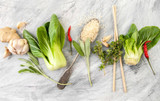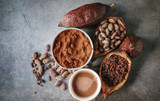
Established for over 20 years, Berringa is an Australian owned company, based in Melbourne (Australia). They only source 100% Australian honey and are passionate about the quality and integrity of they honey they provide. Berringa are strong advocates and supporters of sustainable farming and work closely with beekeepers to ensure good farming practices.
The Manuka Process
It all starts with the bees. Berringa bees forage on Leptospermum (aka Teatree) plants in the pristine coastal areas of QLD & NSW, Australia - a unique environment ideal for creating high strength antibacterial Manuka.

Once the bees have done their part, Berringa cold extracts, filters and gently warms the Manuka honey before bottling – and that’s it! There are no additives, no excess processing and definitely no high temperatures. This means that Berringa Manuka has a stronger taste and a thicker, stickier and darker consistency to regular honey.
Antibacterial Strength
Berringa have each batch of Manuka independently tested to verify its antibacterial strength, so you can be confident that when you buy Berringa Manuka, you are buying the real deal.
You may already be aware of the UMF (unique Manuka factor) grading system, which is used for New Zealand Manuka honey. However for Australian Manuka, the MGO (methylglyoxal) system is alternatively used to measure the honey’s antibacterial strength.
Berringa Manuka ranges from MGO 60+ right up to MGO 900+, so there is an Australian Manuka honey to suit all needs.
How to use Berringa Manuka Honey
- Swallow a spoonful to help soothe the throat and stomach.
- Mix one teaspoon with the juice of one lemon and hot water for a natural cold & flu drink.
- Higher MGO Manuka honeys can be applied topically to the skin as a balm for skin infections, bites and minor cuts.
- Use it as a sweetener in baking and teas.
- Add it to smoothies, spread it on toast, drizzle it over your porridge or natural yoghurt for a daily immunity boost.

Disclaimer
As with anything edible, allergies and other medical conditions should always be kept in mind. Some things to note:
- Avoid honey if you are allergic to bees, or allergic to the pollen from which the honey is made.
- Honey consumption is not recommended for people following the FODMAP diet. Topical use may be suitable, but please conduct a skin patch test initially.
- Honey can increase blood sugar levels, so diabetics should be aware if consuming honey.
- There’s a risk that honey can interfere with some drugs or therapies, including some chemotherapy drugs.
- Honey is safe for pregnant women, but avoid medicinal amounts or topical use.
- Raw honey is not recommended for consumption in children under 12 months of age because there is a risk of botulism poisoning.


![Introducing Yarra Valley Tea [Supplier Spotlight] Introducing Yarra Valley Tea [Supplier Spotlight]](https://cdn11.bigcommerce.com/s-dis4vxtxtc/images/stencil/160w/uploaded_images/blog-thumbnail-yarra-valley.jpg)
![Introducing Matcha Maiden [Supplier Spotlight] Introducing Matcha Maiden [Supplier Spotlight]](https://cdn11.bigcommerce.com/s-dis4vxtxtc/images/stencil/160w/uploaded_images/blog-thumb-matcha-maiden.jpg)

![Introducing Fangst [Supplier Spotlight] Introducing Fangst [Supplier Spotlight]](https://cdn11.bigcommerce.com/s-dis4vxtxtc/images/stencil/160w/uploaded_images/blog-thumbnail-fangst.jpg)